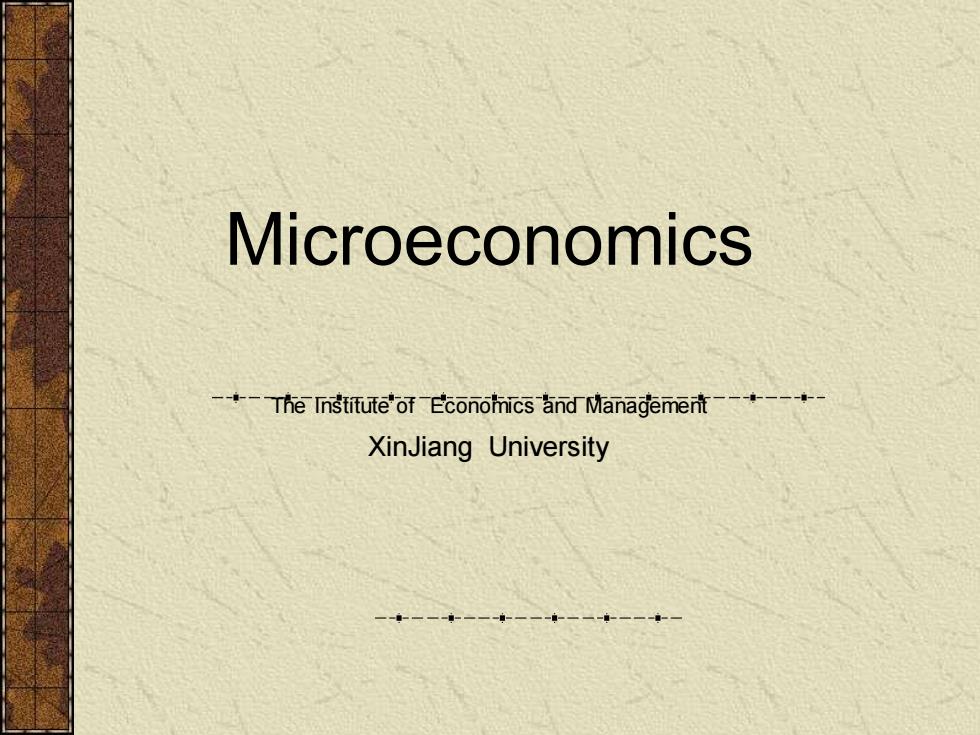
Microeconomics +-The Institute'of Econo赤mics and Management-+-· XinJiang University
Microeconomics The Institute of Economics and Management XinJiang University
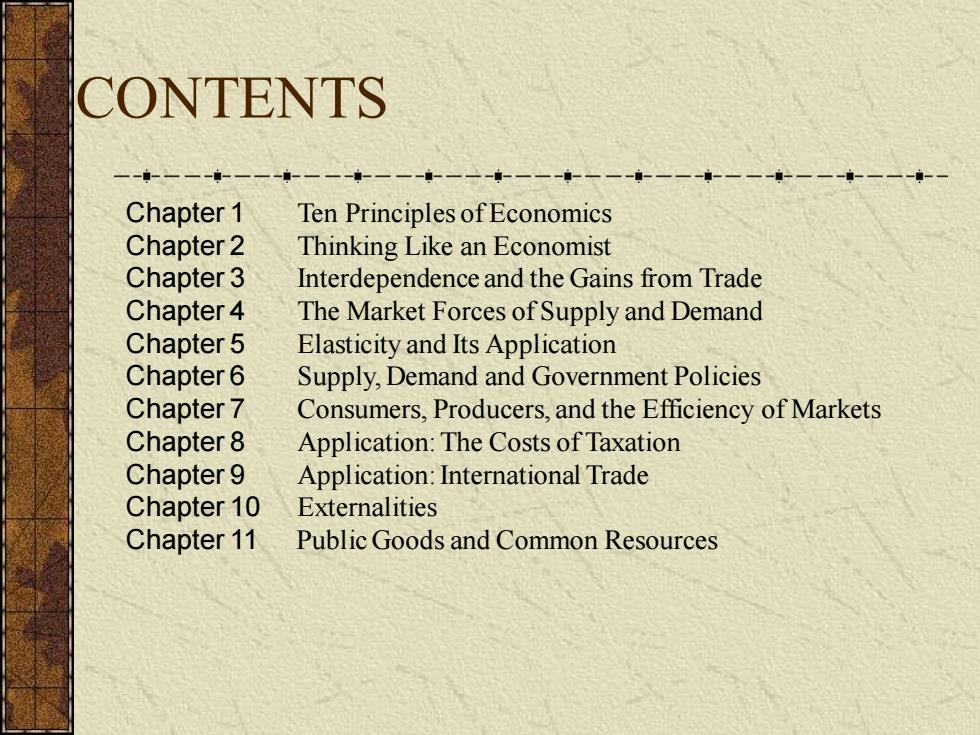
CONTENTS Chapter 1 Ten Principles of Economics Chapter 2 Thinking Like an Economist Chapter 3 Interdependence and the Gains from Trade Chapter 4 The Market Forces of Supply and Demand Chapter 5 Elasticity and Its Application Chapter6 Supply,Demand and Government Policies Chapter 7 Consumers,Producers,and the Efficiency of Markets Chapter 8 Application:The Costs of Taxation Chapter 9 Application:International Trade Chapter 10 Externalities Chapter 11 Public Goods and Common Resources
CONTENTS Chapter 1 Ten Principles of Economics Chapter 2 Thinking Like an Economist Chapter 3 Interdependence and the Gains from Trade Chapter 4 The Market Forces of Supply and Demand Chapter 5 Elasticity and Its Application Chapter 6 Supply, Demand and Government Policies Chapter 7 Consumers, Producers, and the Efficiency of Markets Chapter 8 Application: The Costs of Taxation Chapter 9 Application: International Trade Chapter 10 Externalities Chapter 11 Public Goods and Common Resources
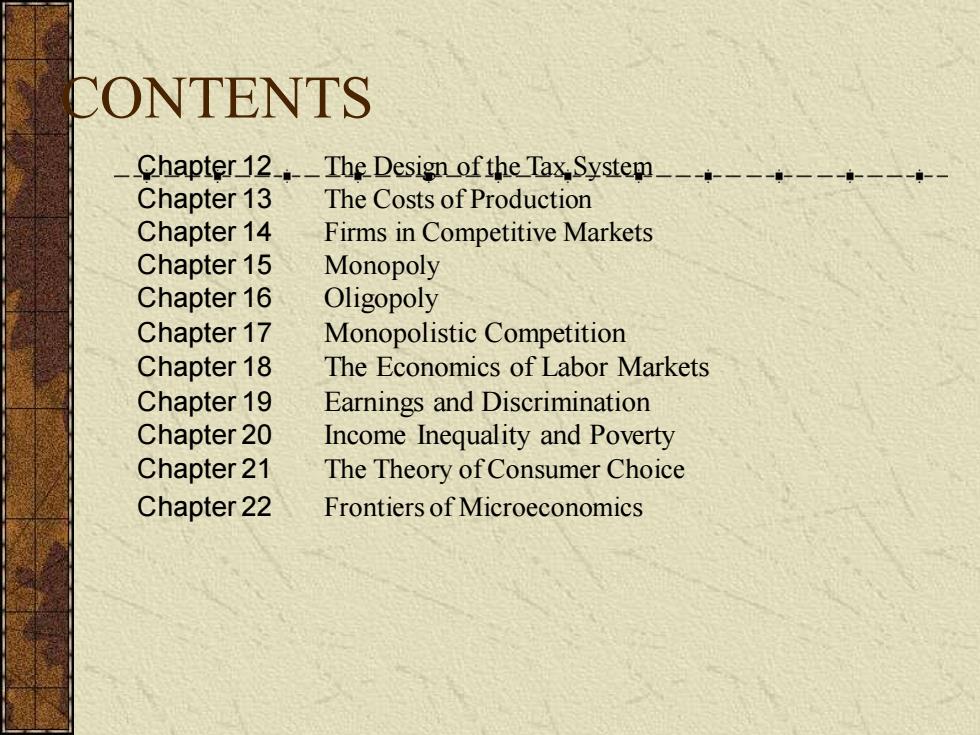
CONTENTS Chapter 12The Design of the Tax System Chapter 13 The Costs of Production Chapter 14 Firms in Competitive Markets Chapter 15 Monopoly Chapter 16 Oligopoly Chapter 17 Monopolistic Competition Chapter 18 The Economics of Labor Markets Chapter 19 Earnings and Discrimination Chapter 20 Income Inequality and Poverty Chapter 21 The Theory of Consumer Choice Chapter 22 Frontiers of Microeconomics
CONTENTS Chapter 12 The Design of the Tax System Chapter 13 The Costs of Production Chapter 14 Firms in Competitive Markets Chapter 15 Monopoly Chapter 16 Oligopoly Chapter 17 Monopolistic Competition Chapter 18 The Economics of Labor Markets Chapter 19 Earnings and Discrimination Chapter 20 Income Inequality and Poverty Chapter 21 The Theory of Consumer Choice Chapter 22 Frontiers of Microeconomics
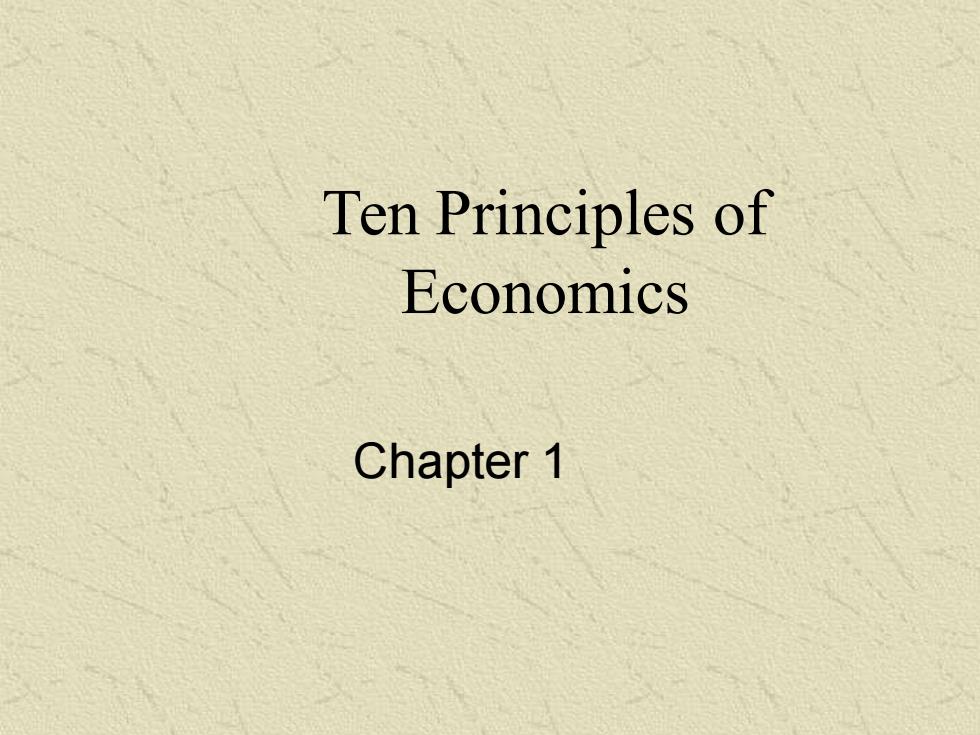
Ten Principles of Economics Chapter 1
Ten Principles of Economics Chapter 1
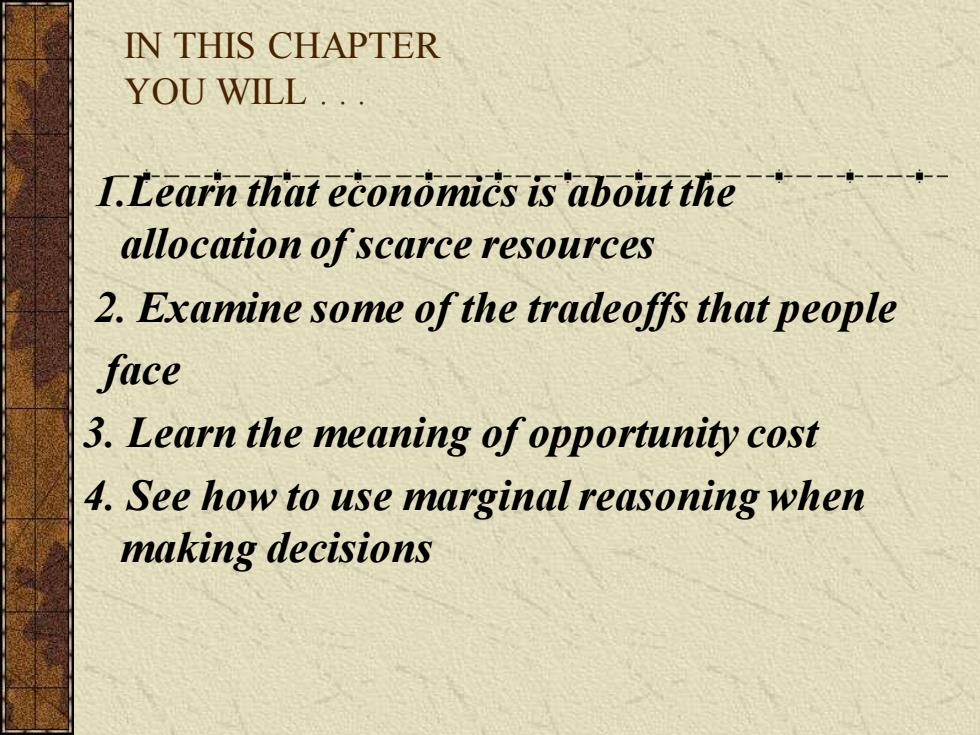
IN THIS CHAPTER YOU WILL. I.Learn that economics is about the allocation ofscarce resources 2.Examine some of the tradeoffs that people face 3.Learn the meaning of opportunity cost 4.See how to use marginal reasoning when making decisions
IN THIS CHAPTER YOU WILL . . . 1.Learn that economics is about the allocation of scarce resources 2. Examine some of the tradeoffs that people face 3. Learn the meaning of opportunity cost 4. See how to use marginal reasoning when making decisions

IN THIS CHAPTER YOU WILL. 5.Discuss how incentives affect people's behavior 6.Consider why trade among people or nations can be good for everyone 7.Discuss why markets are a good,but not perfect way to allocate resources 8.Learn what determines some trends in the overall economy
IN THIS CHAPTER YOU WILL . . . 5.Discuss how incentives affect people’s behavior 6. Consider why trade among people or nations can be good for everyone 7. Discuss why markets are a good, but not perfect way to allocate resources 8. Learn what determines some trends in the overall economy

Economy. The word economy comes from a Greek word for one who manages a household
Economy. . . . . . The word economy comes from a Greek word for “one who manages a household
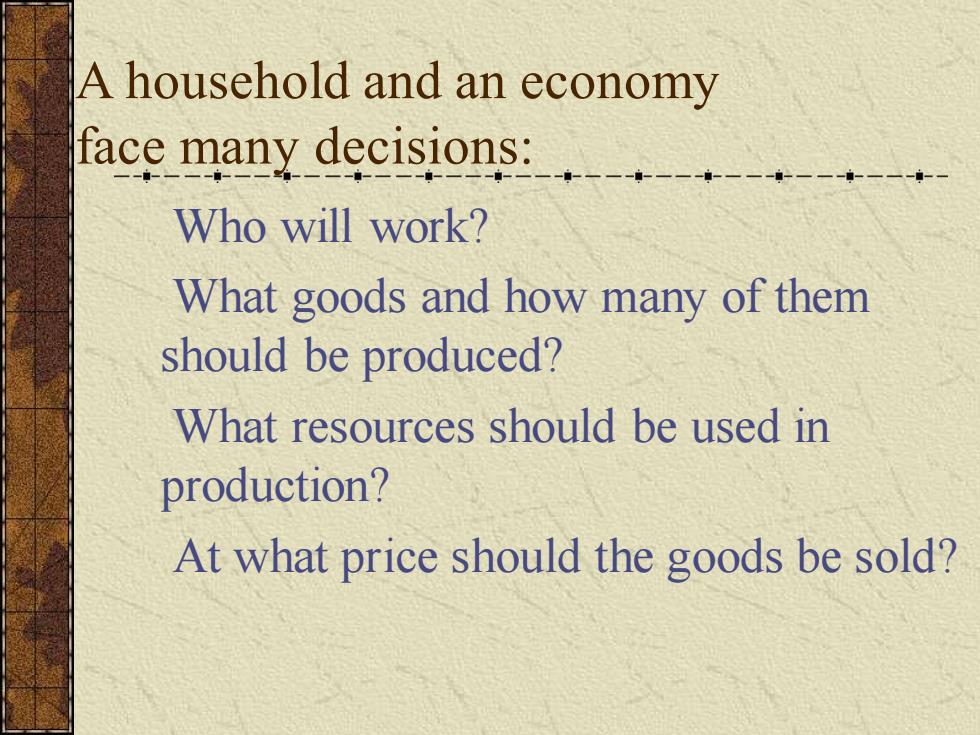
A household and an economy face many decisions: Who will work? What goods and how many of them should be produced? What resources should be used in production? At what price should the goods be sold?
A household and an economy face many decisions: Who will work? What goods and how many of them should be produced? What resources should be used in production? At what price should the goods be sold?
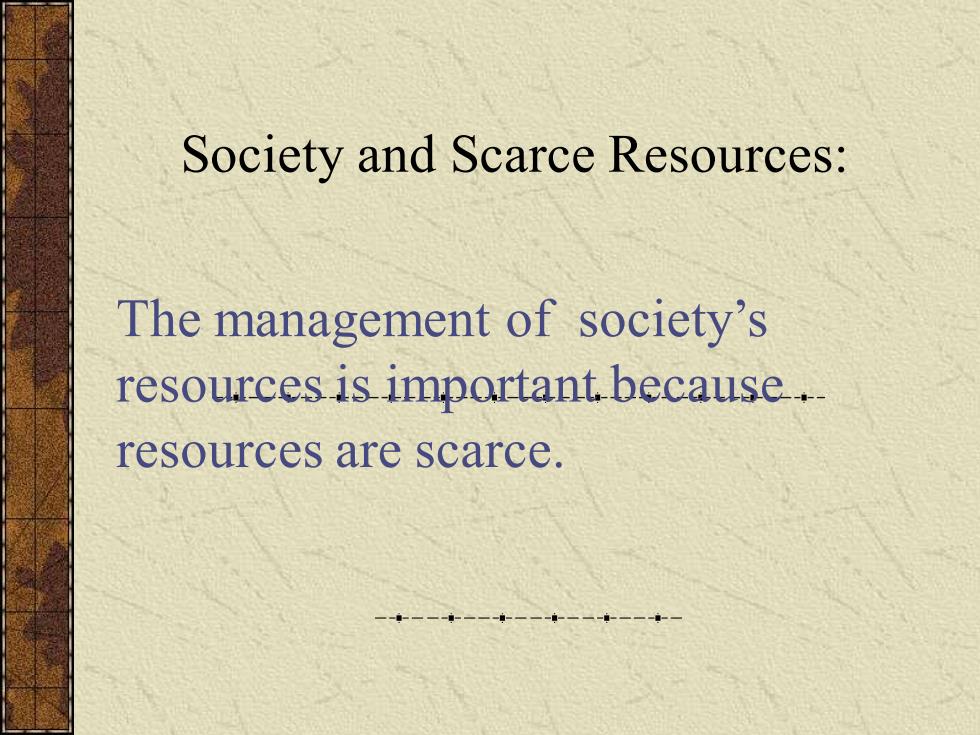
Society and Scarce Resources: The management of society's resources is important.because. resources are scarce
Society and Scarce Resources: The management of society’s resources is important because resources are scarce
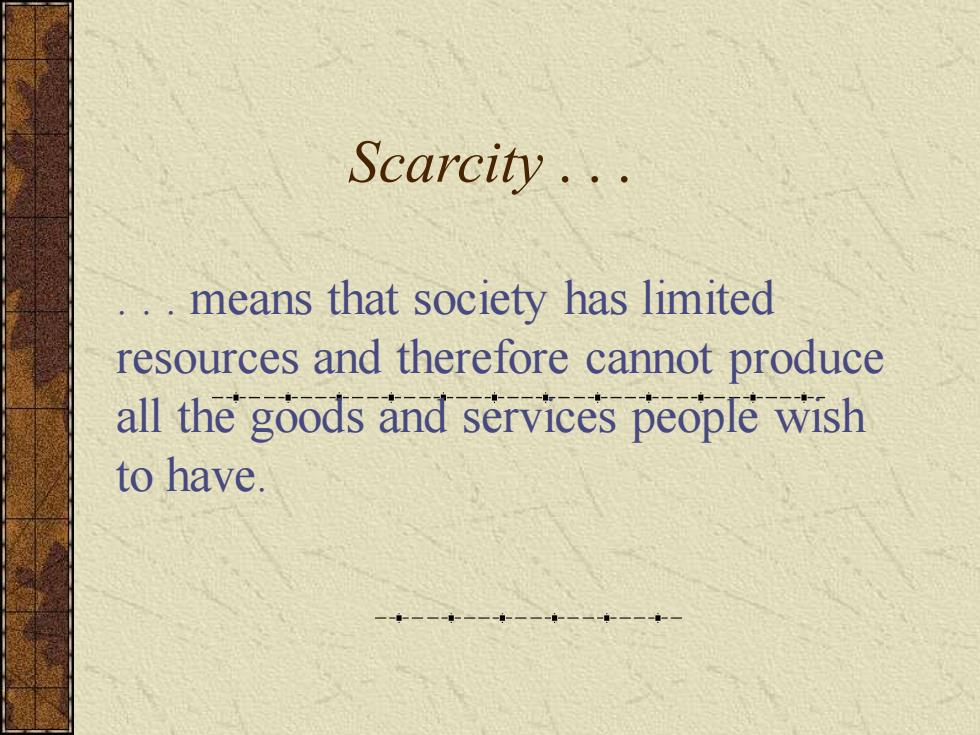
Scarcity. .means that society has limited resources and therefore cannot produce all the goods and services people wish to have
Scarcity . . . . . . means that society has limited resources and therefore cannot produce all the goods and services people wish to have